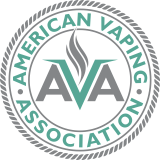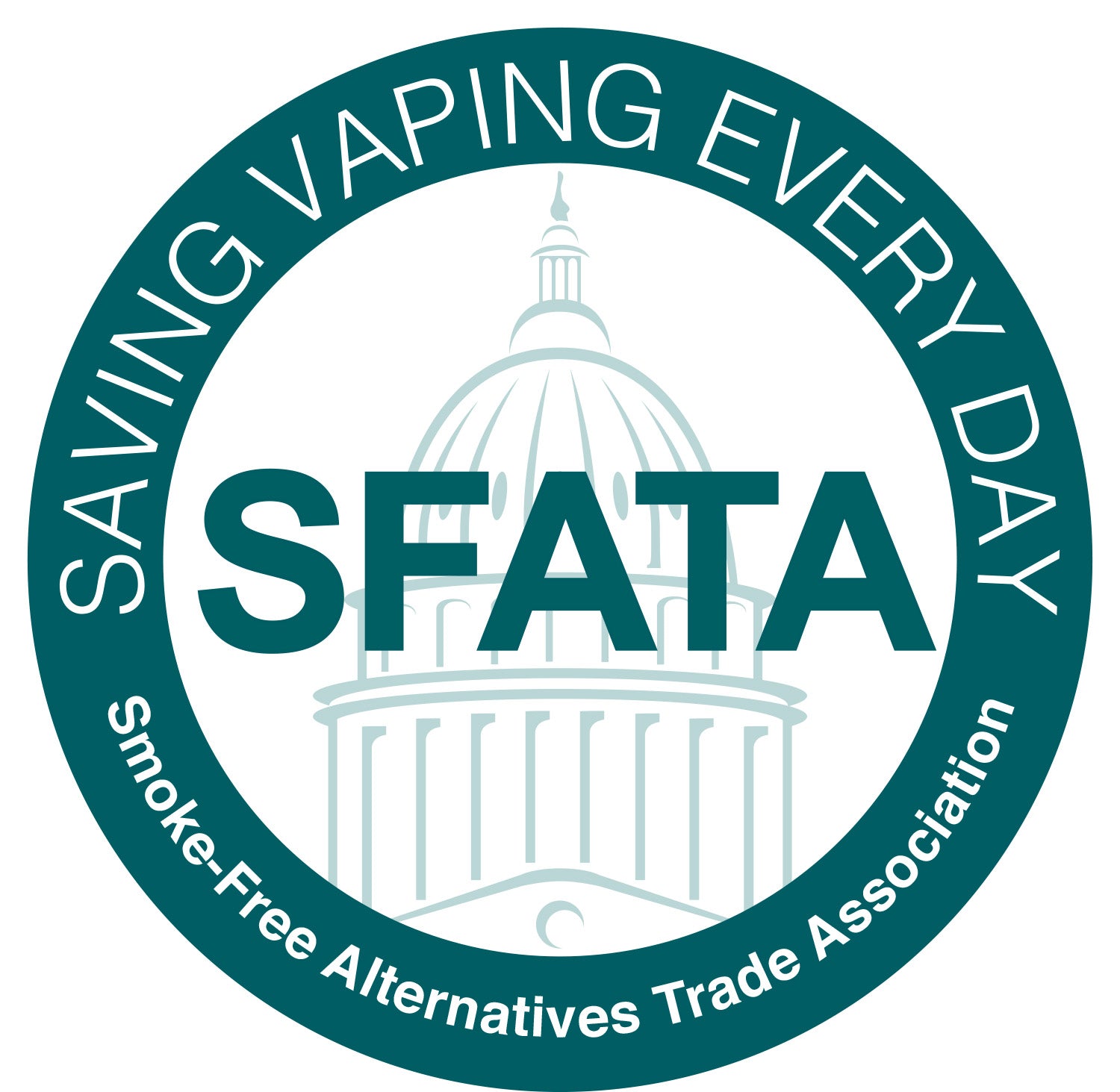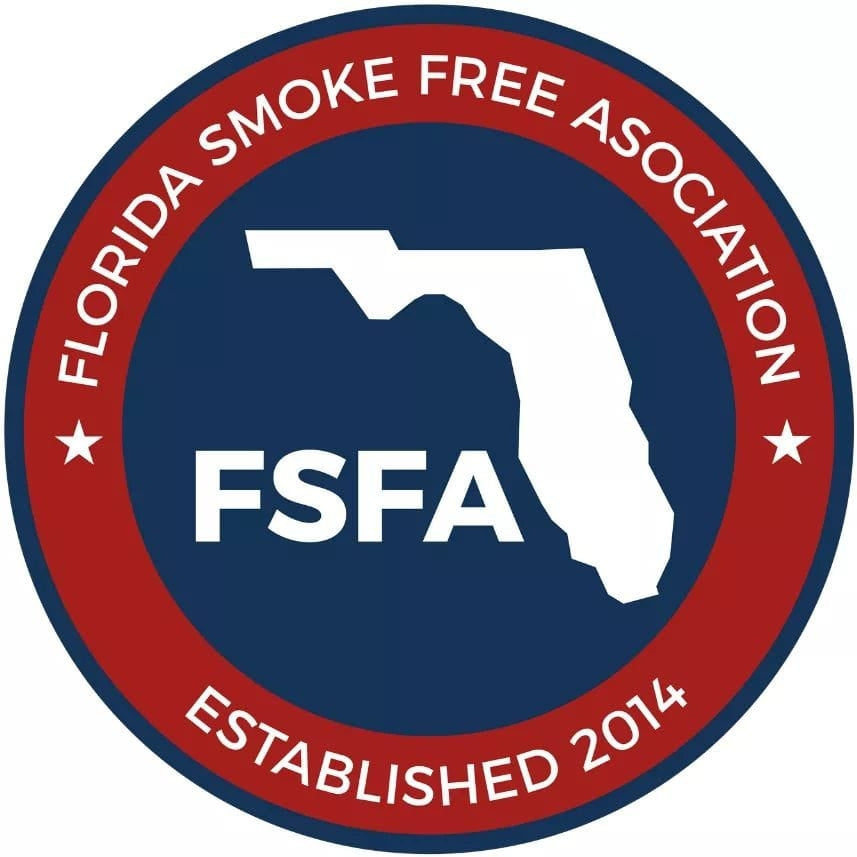If you've been a fan of our premium e-liquids for any amount of time, you should know that we absolutely LOVE menthol in flavors. Menthol isn't just that icy kick to finish off a fruit blend, it also helps to balance out what would otherwise be a dull or overwhelming flavors; making you feel sick of the blend long before you finish it in your tank or pod. Why, all of a sudden, are we bringing up our love of menthol?
Well, if the FDA gets their way, we'll all be saying goodbye to menthol! The agency is currently going through their public comment period on their proposed menthol ban and let's just say this: that sounds like a terrible idea for adult smokers like you and us.
As an e-liquid manufacturer that loves adding menthol to our formulations, we clearly have gripes with the menthol ban. And business interests aside, we, as vaping consumers will face yet another set of challenges that ultimately restrict our access to these otherwise legal products. So that's what we'll focus on in today's article. What is the logic behind the FDA's menthol ban and what, if any, are the arguments against it? At the end of the day, we want to make sure you are well-equipped with the latest happenings in the industry and what you can do to protect your right to choose! Without further ado, let's jump right in.
UNDERSTANDING THE fda's MENTHOL BAN
Tobacco compliance is dense to say the least. For all companies in the industry, there are a set of rules to follow that might otherwise seem redundant, expensive, and flat-out annoying. To exist in the market, however, one would need to understand why such a large regulatory agency such as the FDA would propose these rules and what they hope to achieve from it. What is the FDA's proposed menthol ban?
The FDA seeks to stamp out menthol in cigarettes and flavored cigars. While this ban wouldn't affect ENDS products and e-liquids, this will set the precedent for future product standards to exist in our space, further restricting your access to flavors that have the data to prove your success rate in effectively making the switch away from cigarettes in favor of an alternative that wouldn't put you at such a high risk of developing health complications.
The agency believes that menthol is considered a characterizing flavor much in the same light that fruit, dessert, and candy blends are. They believe that menthol gives off the icy kick to help lessen the harsh throat hit smoking causes while simultaneously triggering a more-intense nicotine rush, thus perpetuating the addiction.

Why is the agency doing this? Their reasoning falls under the typical narrative of tobacco control: protect the kids! It's always to protect the kids, even if that means engaging in prohibition that historically never works. It didn't work in the 1930s with alcohol, failed in the 1980s with drugs, but hey, third time's the charm, right?
The proposed rules would help prevent children from becoming the next generation of smokers and help adult smokers quit. Additionally, the proposed rules represent an important step to advance health equity by significantly reducing tobacco-related health disparities.
by Health and Human Services Secretary Xavier BecerraOPPOSITION TO THE MENTHOL BAN
We have several arguments against the menthol ban, but the Arizona Attorney General's comment paints a telling tale of everything wrong with what the FDA is trying to achieve. Whether it be the proliferation of the black market, to the loss of tobacco tax revenue, to public health not improving, and even widening the racial inequality, taking the approach of prohibition is NOT the answer.

THE PROLIFERATION OF THE BLACK MARKET
Historically, prohibition-style regulations cause black markets to thrive. Black markets are simply the continuation of a transactional industry without regard to rules and regulations that may be in place. For example, in May 2022, Massachusetts implemented a statewide ban on flavored tobacco products. And while sales of those products decreased significantly, sales increased for non-flavored tobacco products. The end result was no change in legal sales.
The proliferation of the black market, however, experienced an explosion in sales. Neighboring states such as New Hampshire, which does not have a ban in place helps move this along as tobacco products are legal for interstate commerce, so what is to stop a distributor from making a purchase of flavored tobacco products in New Hampshire and simply taking it across the border? If the purchase happened in a different state, the state with the ban in place loses out on tax revenue and people still have access to these products.
Zooming out of Massachusetts, say if the FDA did implement its ban, border states such as California, Nevada, Arizona, and Texas will have to contend with black markets sprouting up as Mexico's tobacco control policies are relatively relaxed. Cigarette smuggling will likely become the new norm while states miss out on millions of dollars in tobacco tax revenue.
It is worth noting that the FDA itself will not enforce the menthol ban on individual users that purchase black market tobacco products or simply possess them post-ban. How this plays out, however, puts a significant strain not just on the public health population, but rather, the public safety population. Who are the actors that perpetuate a black market? Well, for the border states, it would be Mexico. And for the non-border states, it would be any criminal network that wants to maximize their profits. And since it's already a black market, what is to stop them from skirting around the rules?
And beyond illicit sales, a black market skirts the safety regulations in place to mitigate the risk of community harm, not just the individual that consumes these products. For example, Arizona mandates that cigarettes sold in the state need to be Fire Standard Compliant Cigarettes (FSCs), meaning the burning cigarettes will eventually go out as to prevent fires from starting when idle.

STATES TAKE A BEATING IN TOBACCO TAX REVENUE
Following the proliferation of the black market, one of the major consequences of restricting legal access to tobacco products is the loss of state tax revenue.
Dating back to the Tobacco Master Settlement Agreement (MSA) of the 1990s, tobacco companies are required to hand over millions of dollars in perpetuity to these states.
Looking at the numbers provided by the Tax Foundation, menthol cigarette smokers account for 37% of the overall market. That's 18.6 million adult smokers that legally have access to these products. 18.6 million smokers, each pack of cigarettes yields about 75 cents from the MSA with an additional $1.91 in state and local taxes and you're looking at an estimated $49.5 million dollars in tax revenue. Most of which would effectively disappear if legal access to these products are restricted.
What can a state fund with the tax revenue? Well, for starters, the MSA directly contributes to New York's Medicaid, New Hampshire's public education fund, and North Carolina's community colleges. It's important to note, that while tobacco taxes generally harm your ability to access tobacco products, the revenue generated helps the community as a whole, thus consistently improving public health. This little-known fact seems get lost in the sauce for an agency as far-reaching as the FDA, which literally exists to promote public health through responsible policymaking.
WIDENING RACIAL INEQUALITY
Fact: the majority of the 18.6 menthol smokers are people of color, to the tune of 85% of them. When menthol was first added to cigarettes in the 1930s, the products were marketed as a pain reliever against "smoker's throat." Fast forward to the 1960s and menthol cigarettes were exposed as not a therapeutic option, but rather, as a product to perpetuate nicotine addiction. Then in the 1970s, when cigarette ads and commercials were banned from national TV stations, tobacco companies pivoted to the equivalent of influencer marketing as barbershops and other community hotspots became the hubs for the mass distribution of menthol cigarettes. It's safe to say that menthol cigarettes are to people of color as water is to humans.
Couple all of that with Jim Crow style racial prejudice that still exists in some way shape or form today and you have yourselves a quagmire. Should the FDA outlaw menthol and severely cripple people of color's access to menthol cigarettes that have become a mainstay vice for almost 100 years? Or is there a way to do that without perpetuating another generation of nicotine addiction that will only harm public health for years to come?
public health WILL suffer


If the FDA's main directive is to promote a consistent improvement in public health through regulation and policymaking, their prohibitionist approach to it is inherently flawed. Citing Secretary Becerra's three-pronged approach above, a ban on mentholated (and flavored) cigarettes and cigars will achieve the following:
- Decrease the appeal of tobacco products for children;
- Increase access smoking cessation avenues to current users; and
- Narrow the racial inequality disparities
All three of these points are likely to achieve the opposite effect.
the youth will still find smoking to be appealing
Let's be real - when we were kids and our relatives were smoking, it looked cool, right? Chances are that we didn't know what kind of cigarette it was, whether it contained menthol, cloves, or just straight tobacco. The fact of the matter was, our family was smoking it so therefore it must be cool! And looking at the CDC's 2021 report on tobacco product use among minors, only 1.5%, or 4.47 million children actually found flavored cigarettes to be appealing at all. Therefore, restricting access to these products tackles youth appeal in a very ineffective way. The FDA views less than five million children as a major health crisis than restricting legal access of product to 18.6 million adults. Strange logic to say the least.
And as for youth initiation to tobacco products, if children are good at anything, it's getting their hands on products that are not meant for them. Whether that's producing a fake ID to enter a vape shop or finding retailers that don't follow the Tobacco21 law by requiring all patrons to show proof of their age, or even committing credit card fraud and making purchases online, the youth will always find a way.
THE ARGUMENT THAT MENTHOL CAUSES GREATER NICOTINE ADDICTION IS FALSE
Another point that counters the FDA's public health claim are that menthol cigarettes perpetuate nicotine addiction and to remove the characterizing flavor would effectively force users to either pursue non-mentholated alternatives or quit outright. While this is certainly a noble cause for prohibition, the logic behind it is flawed. According to a 2022 study by Vanderbilt University Medical Center, quit rates between smokers who used menthol versus non-mentholated products produced similar results. Out of the 16,425 study participants over 9,000 of them being people of color, the average quit rate was 4.3% for menthol smokers and 4.5% for non-menthol smokers. So really, menthol in tobacco products produces no difference in health risk, no stark contrast in quit rates, and no change in racial disparity, where is the FDA getting this data from?
YOU CAN'T SOLVE RACIAL INEQUALITY THROUGH PROHIBITION OF PREFERENTIAL PRODUCTS
This might be a tough pill to swallow, but you cannot aim to solve racial inequality through prohibition of preferential products. As we mentioned above, people of color historically prefer mentholated tobacco products over non-mentholated ones. With 81% of African Americans and 51% of Hispanic smokers preferring them, according to the 2020 National Survey on Drug Use and Health. The fact of the matter is this: nicotine addiction and chronic tobacco use harms EVERYONE, not just people of color, menthol users, or non-menthol users. Should the agency move forward with restricting access to menthol products, EVERYONE is on the hook for it, but most notably, people of color.
If closing the racial equality gap is the FDA's aim, there are several alternatives the agency can take. All of which, would require a great deal of cooperation between communities, regulatory agencies, law enforcement, and local governments. Taking an action-first, discussion-later approach to public health policymaking not only fails to solve the issue, but rather, will open up a whole new can of worms to tackle on top of the existing issue.
THE VAPE INDUSTRY IS NEXT
The FDA's most hated nemesis are flavors. Whether that's fruit, dessert, candy, beverages, and now, menthol, characterizing flavors in the agency's eyes remain a thorn in its side as it continues to rely on fear, subtle tyranny, and outdated prohibitionist ideology to achieve its aims. While the FDA's proposed menthol ban only extends to cigarettes and cigars, should it pass, alternative tobacco products such as e-cigarettes and their respective e-liquids are next up to bat.
Flavors in e-liquids have been thoroughly studied and consistently conclude that the presence of them in the formulations serve as an effective way to convert current cigarette users away from the products in favor for a less-harmful alternative. The vaping industry, however, is still not a widely-known platform for users to switch over to. According to the National Trends Survey, only 2.6 percent of adults believe that vaping is a less harmful alternative to smoking.
The vaping industry consistently deals with regulations, prohibitions, and taxes so high that companies would rather close their doors than try to stay afloat. However, an outright ban on nearly 95% of all products would be that final nail in the coffin to effectively kill the industry. What can be done?
Well, the FDA's public comment period is over. However, the fight continues. Remember, Congress prohibits the FDA from outright banning nicotine and tobacco products. Instead, the agency must rely on product standards and an egregiously expensive and slow marketing authorization process. During all of that time, we urge you to call up your local representatives and tell them how much you enjoy not only the products you love, but the simple fact that you have the freedom to choose what you put into your body. You can cite this article and the 175,483 other comments that live on the FDA's Docket of the Menthol Ban, too. At the end of the day, prohibition will harm you, the adult smoker. Nobody else. Exercise your human right to choose and resist anyone or any agency to tell your otherwise. Happy vaping, BLVK fam.










Leave a comment
This site is protected by hCaptcha and the hCaptcha Privacy Policy and Terms of Service apply.